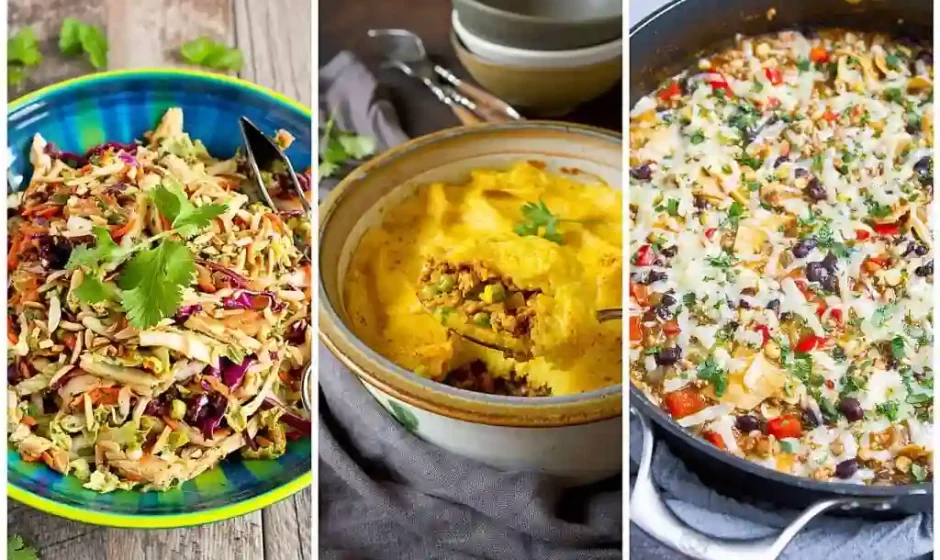The importance of staying hydrated cannot be overstated. Water is essential for life, and its benefits go far beyond quenching your thirst. Adequate hydration is vital for overall well-being, including digestion, metabolism, temperature regulation, and even cognitive function. While it’s crucial to drink water throughout the day, your dinner can also play a role in maintaining proper hydration. In this article, we will explore the relationship between hydration and healthy dinners and provide tips for staying nourished.
The Importance of Hydration
Water is involved in countless physiological processes within your body, making it a fundamental component of good health. Some key roles of hydration include:
- Temperature Regulation: Sweating is your body’s natural cooling mechanism. Staying hydrated helps regulate your body temperature, especially during physical activity or in hot weather.
- Digestion: Water plays a crucial role in breaking down food, facilitating the absorption of nutrients, and preventing constipation.
- Cognitive Function: Dehydration can impair cognitive functions such as memory, attention, and decision-making.
- Metabolism: Proper hydration is essential for efficient metabolism and the transport of nutrients and waste products within the body.
- Joint Health: Water cushions and lubricates joints, reducing the risk of injury and discomfort.
- Detoxification: Adequate hydration supports the body’s natural detoxification processes, helping to flush out waste and toxins.
Hydration and Dinner
While it’s common to associate hydration primarily with drinking water, your dinner can also contribute to your overall fluid intake. Many foods have a high water content, which can help keep you hydrated. Incorporating hydrating foods into your dinner can be particularly beneficial, especially if you have difficulty drinking enough water throughout the day.
Hydrating Foods for Dinner
Here are some hydrating foods that you can incorporate into your dinner to boost your fluid intake:
- Cucumber: Cucumbers are made up of over 95% water and are a refreshing addition to salads, sandwiches, or as a side dish.
- Watermelon: Watermelon is not only delicious but also contains about 90% water, making it an excellent hydrating fruit choice for dessert.
- Lettuce: Leafy greens like lettuce have a high water content and are perfect for salads, wraps, or sandwiches.
- Tomatoes: Tomatoes are approximately 95% water and can be used in various dishes, from salads to sauces.
- Zucchini: Zucchini is another hydrating vegetable, often used in stir-fries, sautés, or spiralized as a pasta substitute.
- Bell Peppers: Bell peppers are not only colorful but also hydrating, making them a great addition to stir-fries, fajitas, or salads.
- Oranges: Citrus fruits like oranges contain water and electrolytes, making them a good choice to boost hydration.
- Berries: Berries such as strawberries, blueberries, and raspberries have a relatively high water content and are great for snacking or adding to yogurt or desserts.
Tips for Staying Hydrated During Dinner
Here are some practical tips for incorporating hydration into your dinner routine:
- Start with a Hydrating Salad: Begin your dinner with a fresh salad containing leafy greens, cucumbers, and tomatoes to kickstart your hydration.
- Include Water-Rich Side Dishes: Pair your main course with side dishes that contain hydrating ingredients. For example, serve grilled chicken with a side of steamed asparagus or zucchini.
- Hydrate with Herbal Teas: Consider drinking herbal teas like mint or chamomile with your dinner. They not only add flavor but also contribute to your fluid intake.
- Consume Hydrating Desserts: Opt for hydrating desserts like watermelon slices or a fruit salad to satisfy your sweet tooth while staying hydrated.
- Limit Salt Intake: Excess salt can lead to dehydration, so be mindful of your salt consumption during dinner.
- Stay Mindful of Alcohol and Caffeine: While a glass of wine or a cup of coffee with dinner can be enjoyable, both alcohol and caffeine can have diuretic effects. Balance these beverages with plenty of water.
- Set a Hydration Goal: Aim to finish a glass of water during your meal. Sip on water between bites to stay hydrated without feeling overly full.
Balancing Hydration with Salt Intake
While hydration is essential, it’s also crucial to balance it with your sodium (salt) intake, as excessive salt can lead to dehydration. Here are some tips for maintaining this balance:
- Use Herbs and Spices: Enhance the flavor of your dishes with herbs and spices rather than excessive salt.
- Choose Low-Sodium Options: Opt for low-sodium or no-added-salt versions of canned soups, broths, and sauces.
- Read Labels: Check the labels of processed foods for sodium content and try to choose lower-sodium options.
- Limit Processed Foods: Processed foods, including snacks and fast food, often contain high levels of salt. Reducing your consumption of these foods can help maintain a healthy sodium balance.
Conclusion
Hydration is a fundamental aspect of overall well-being, and dinner can play a significant role in meeting your daily fluid needs. By incorporating hydrating foods and beverages into your evening meal, you can support your body’s hydration status and enjoy the numerous benefits it offers. Remember to balance your sodium intake and make conscious choices that promote hydration and overall health. Staying nourished through hydration is a simple yet powerful way to enhance your quality of life and maintain optimal health at any age.



